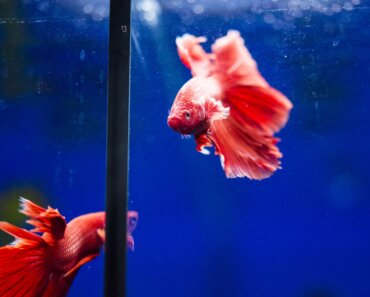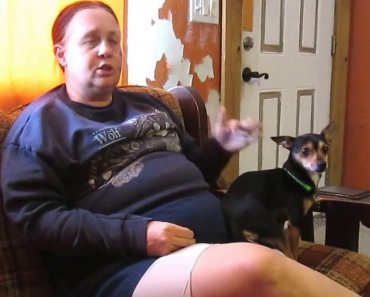Are you unintentionally making your dog’s behavioral challenges worse? From inconsistent rules to involuntary reinforcement of bad habits, this article looks at the seven everyday actions that hinder a dog’s positive behavioral progress.
Understanding the ways you might inadvertently contribute to your dog’s behavioral issues is essential for raising a well-adjusted canine companion. By embracing a consistent training practice, prioritizing socialization and mental stimulation, recognizing the influence of health and environmental factors, and maintaining consistent rules, you can create a healthy relationship with your four-legged friend. Here are seven ways you might accidentally be exacerbating your dog’s behavior.
1. Inconsistent Rules
Dogs thrive in environments where they can predict and understand the rules that govern their behavior. When rules are inconsistent, it can create confusion, anxiety, and problem behaviors.
Behavioral issues can occur in various scenarios, such as:
- Allowing a dog on the couch while scolding them for jumping on the bed
- Occasionally slipping your dog a leftover but punishing them other times for begging
- Inconsistent enforcement of off-leash behavior during walks
Set clear rules for your dog’s behavior and ensure everyone is on the same page. Sticking to the plan and being patient is key to having a relaxed, well-behaved furry friend in a cozy home.
2. Unintentional Reinforcement of Bad Habits
This can happen when actions, attention, or rewards encourage unwanted behavior due to a lack of awareness about how dogs interpret our actions. Touching, talking, or making eye contact with your dog are all forms of reinforcement and can create excitement.
For example, you might reinforce excessive barking when you give your dog attention or treats to quiet them down. You might also reinforce attention-seeking behaviors such as whining, pawing, or barking when you pet or talk to your dog. Even comforting a fearful dog during thunderstorms can reinforce fear and anxiety. Instead, redirect or interrupt undesired behaviors and reward desirable actions.
3. Lack of Mental and Physical Stimulation
Pent-up energy and frustration can lead to destructive behaviors, such as chewing furniture, digging holes in the yard, or excessive barking.
Similarly, dogs may become anxious, stressed, or even depressed when their physical and mental needs aren’t met. This can contribute to reactivity, separation anxiety, or other challenges. Examples of physical exercise include walks, agility training, and canine sports. Examples of mental stimulation include:
- Brain games
- Interactive toys and puzzles
- Behavior-based training
4. Inadequate Socialization
Exposure to different people, animals, and environments early is crucial for a dog’s development and well-being. It helps them acquire social skills, confidence, and adaptability, reducing the risk of fear, anxiety, and aggression as they mature.
When dogs miss this phase, they may become anxious or reactive and struggle with adapting to new people and places. If you need help with socialization, consider working with a trainer to do this safely and effectively.
5. Neglecting Training
Dogs continually seek guidance from their humans. The key factor is determining if you’re reinforcing behaviors you want to see or inadvertently encouraging those you don’t. You must train yourself before you can teach your dog. What’s more, training is only effective when you apply the principles consistently, so find a training approach that you can make a part of your daily routine and lifestyle.
6. Ignoring Health and Medical Factors
When dogs experience pain or discomfort due to an undiagnosed medical condition, they may express their distress in different ways, including behavioral changes.
For instance, a dog suffering from dental issues might become irritable and aggressive due to constant pain. Dogs with gastrointestinal problems may exhibit excessive chewing or digging in response to discomfort.
Ignoring symptoms makes it challenging to address the root causes of undesirable behavior. Regular vet check-ups help catch medical issues early, keeping your dog healthy and happy.
7. Overlooking Environmental Stressors
External factors in a dog’s surroundings can significantly influence their behavior. They may exhibit anxiety, fear, reactivity, or withdrawal. Environmental stressors can include:
- Loud noises like fireworks and thunderstorms
- Changes in routine, such as altered feeding times
- Unfamiliar environments or people
- Encounters with aggressive animals
- Household changes like moving or introducing new family members
- Distress from being left alone for extended periods
Understanding and managing these stressors is essential for maintaining your dog’s emotional well-being and preventing future issues. You might want to consider working with a professional to identify the root of the issue and develop a safe and effective strategy to support your dog.
Elizabeth “Liz” Foley, an innovative canine educator, founded Canada’s first dog daycare centered on Dog Psychology. She excels in hosting workshops, both in-person and online, aimed at helping women build strong, fulfilling bonds with their dogs. Foley also consults for dog professionals in North America, enhancing their businesses. Her expertise is augmented by mentorship from esteemed trainers like Cesar Millan, the ‘Dog Whisperer,’ and Cherri Lucas. To learn more about Liz, please visit Your Favourite Dog Trainer and @yourfavouritedogtrainer



























